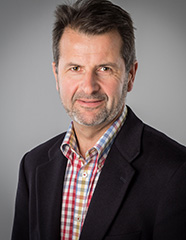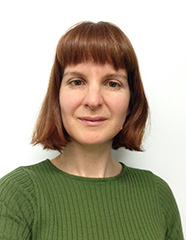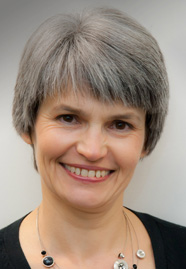The Department of Medicine Wellington Biobank is a storage facility for human samples (such as blood, breast milk and skin swab samples) collected to facilitate health research. The Biobank is a centralised resource to facilitate the appropriate management of the samples and enable access to these samples for research.
The Biobank has received ethical approval from the Ministry of Health's Health and Disability Ethics Committee (reference 21/STH/16).
For researchers
Researchers can apply to contribute samples to or access samples from the Biobank to conduct health-related research that is in the public interest.
Our database carefully tracks all samples, records the conditions under which the samples have been collected and stored, and records a range of data for each sample.
Accessing samples from the Biobank
Currently stored human samples include (but are not limited to) blood, urine, skin and mucosal surface swabs; hair; finger and toenails; umbilical cord samples; sputum; faecal samples; breast milk, bowel tissue.
Applications to use samples will be reviewed by the Biobank Governance Group.
The following requirements must be met:
- New Zealand ethical approval will be required for any study using samples from the Biobank unless the proposed sample analysis has been previously approved.
- At least one University of Otago, Wellington researcher must be a named investigator on the study.
- Research may be conducted overseas (with any caveats decided by the governance group) however Biobank samples may not be stored overseas long term.
- All processes outlined in the Biobank Standard Operating Procedures must be met.
Samples currently held in the Biobank
Samples have been donated from people who have participated in the following research.
- Food for health; He oranga kai
- Probiotics in Pregnancy Study
- Probiotics for Eczema Treatment Study
- Effects of Helicobacter pylori in prediabetes and type 2 diabetes
Contributing samples to the Biobank
Researchers wishing to contribute samples to the Biobank should contact us early as they begin planning their research. The Biobank Governance Group can advise about applying for ethical approval to store samples for Future Unspecified Research and provide the Biobank template for the HDEC -approved Future Unspecified Research Consent Form. Researchers will be advised about the minimum dataset and any other documentation required to accompany banked samples. We can work with researchers to ensure samples are collected utilising appropriate long term storage equipment and suitable labelling.
Contributing samples to the Biobank
What is the purpose of the Biobank?
Scientific knowledge and new tests develop quickly. Often relatively new tests are very costly to perform. Over several years as new methods are developed, these tests may become more affordable. When conducting research, many samples (such as blood tests) are collected and destroyed after the study is completed. However, these samples could be used for new studies that might benefit all New Zealanders' health without repeating collections.
As we learn more about health conditions, we develop new questions that can be answered by analysing carefully stored samples. Using samples in this way can help us learn more from the significant investment you and others make when they contribute their time and help with research.
How do I contribute samples to the Biobank?
If you are already participating in a research study, the research staff might invite you to contribute samples to the Biobank. The researcher will tell you where to go and how to contribute samples.
What happens to my samples after they have been collected?
If you consent to donate samples to the Biobank, researchers will discuss how we can meet your cultural needs regarding the collection and storage of your samples. Your samples will be securely stored at the University of Otago Wellington campus. Samples are likely to be stored in a very cold freezer designed for research.
What kind of research will my samples be used in?
We don't know yet what type of research the samples will be used for.
Researchers from credible research organisations such as universities may approach the Biobank Governance Group with a particular research proposal, asking to access the samples held in the Biobank to undertake research.
All researchers applying to access the Biobank samples will have their research carefully reviewed and approved by an ethics committee and the application must be accepted by the Biobank Governance Group.
If the samples are being used in research led from New Zealand, the research project will be subject to ethical review in New Zealand. This review requires that the researchers indicate how Māori have been consulted regarding the proposed research. If the research project is led from overseas, the research is likely to be considered by an overseas ethics committee. Samples may be analysed either in New Zealand or overseas.
How will my samples be identified?
Your samples will be stored indefinitely and labelled using a unique study number and your birth year. We will also separately record your National Health Index ( NHI ) number. Your NHI number is what links all of your health information together. We will store your NHI as an encrypted code so that we can access future health information about you if an ethics committee approves this. This may include linking to information held about you by Statistics New Zealand in their database.
Your data, including the information that identifies that the samples came from you, will be stored indefinitely on secure databases overseen by the University of Otago. If we need to send study information to other researchers who are analysing the samples or related data, we will remove any details that can identify you before we send the data.
Will I be told when my samples are used in a research project?
No, in the future, we will not routinely contact you regarding the use of these samples, and we cannot guarantee to individually provide you with information arising from this future research. However the results of research using samples from the Biobank are usually shared by a variety of processes, such as through press releases, presentations to relevant groups and in published papers. As these results are known this website will provide links to the outcomes of research from this biobank.
Will I be able to be identified in the research published using the biobank samples?
No material which could identify you personally will ever be used in any report or publication.
Māori and Biobanking
We acknowledge that Biobank samples and data are a taonga. We acknowledge that Māori hold unique cultural and spiritual beliefs about tissue samples, reinforced through kawa and tikanga. We will engage with you to ensure your cultural values are upheld.
We encourage you and your whānau, hapu and iwi to take the time to discuss what it means to donate samples to the Biobank.
The Department of Medicine has worked closely for the last 25 years with staff at Kōkiri Marae in Seaview and with the Tū Kotahi Māori Asthma Trust. The University of Otago, Wellington has a formal Memorandum of Understanding with the trust. They have and continue to provide appropriate cultural support to our activities including the appropriate storage and care of Biobank samples and the opportunity for any research participants to discuss their sample donation in any of our studies.
Who we are
The Biobank is overseen by the Governance Group:
 Professor Jeremy Krebs
Professor Jeremy Krebs
Head of Research
Department of Medicine
 Fiona Hood
Fiona Hood
Biobank Manager
Contact us
We welcome you to contact us at the email address below with any enquiries. Please include your name and contact details with your enquiry.
Email tissuebank.uow@otago.ac.nz
Department of Medicine Wellington Biobank
University of Otago, Wellington
23A Mein Street
Newtown
Wellington 6242
 Dr Christine Barthow
Dr Christine Barthow